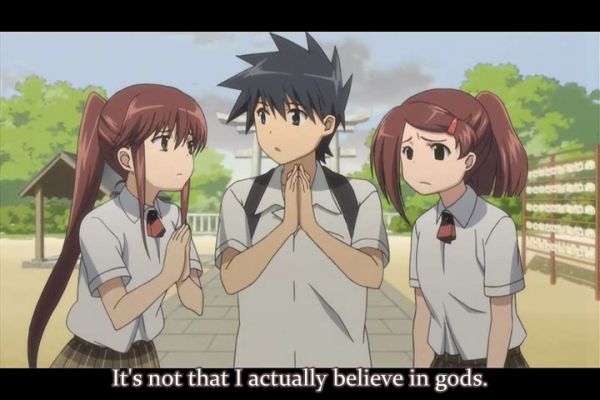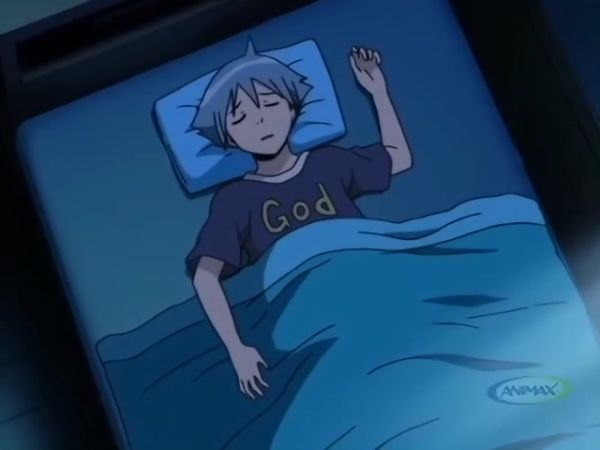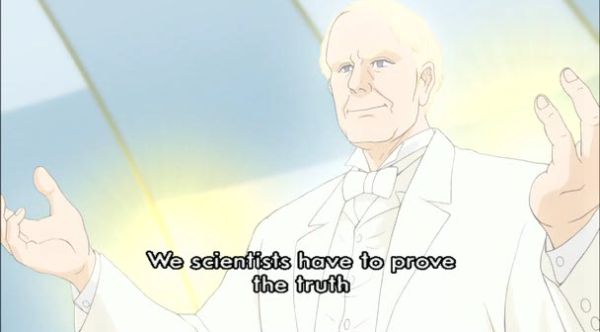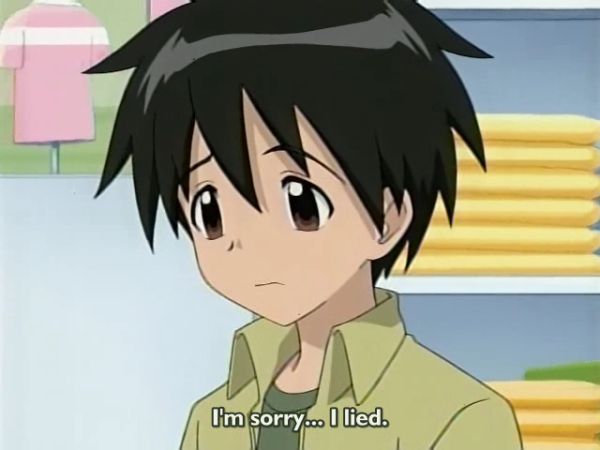You don’t believe in gods? Fine, there are a lot of gods I don’t believe in either. Just don’t be a donkey about it.
The Economist has an article about the Pew poll (what an ironic name in this context) about religious knowledge. Shockingly, this poll showed that members of the Christian majority knew a lot less about the minorities than the minorities knew about them and each other. Who would have thought it? Next we will learn that black kids know the name of more white Presidents than white kids know of black Presidents!
Now, the really funny part is not this piece of non-news, but the excited crowing by the official atheists about their 0.4-point lead over the Jews and 0.6-point lead over the Mormons. Evidently this finally vindicates their claim of mental superiority. I see a different pattern though.
Rather, the sudden loud braying of the atheists (not only when asked to comment on this article, but also on Facebook and other social media) compared with the silence of the Jews and Mormons (who probably feel ashamed that they were not able to answer all the questions). I think this reveals something profound about what makes people atheists in the first place. But first a little detour to Norway.
Here, some 75% of adults are atheists. (More among the young, and the proportion is rising as the last generation of “Christians by default” are dying from natural causes.) Do you think they would do much better than the American Christians? Hopefully a little, given that our educational system is better. But nothing like the American atheists, because in America, atheists are people who actually bother. In Norway, it is the default. Conversely, the questions are trivially easy for me, a Christian in an atheist country.
But the arrogance of the outspoken atheists is much the same here in Norway as in the USA. It is their calling card, so to speak. As well it should be, because the only reason for atheism is a gargantuan arrogance.
It is roughly comparable to a deaf person being convinced and preaching that music does not exist. Sound, sure. You can feel the house vibrating when you turn up the stereo. But music? Ridiculous superstition. It is easy to prove, because people who claim to be musical – or even to be musicians – cannot agree on which music is best. Furthermore, they are unable to describe it in any logical way that makes sense to an outsider. In other words, it is all in their head.
Now, agnosticism is not only a perfectly valid point of view, but it is the only perfectly valid point of view unless you have firsthand experience with higher reality. Which is somewhat but only somewhat voluntary. You can pray and meditate like crazy and depending on who you are, you may never ever experience anything more than you would if you wrote letters to Santa Claus and put them in the fireplace. Such is the fate of some people, and others do experience unusual things but prefer to write them off as mental phenomena. Which sometimes they are, no doubt. Under those circumstances, agnosticism is understandable. In fact, religion is not understandable then, but it still sometimes happens. It could be a leap of faith, or it could be that you have the hots for some religious person, or your business partners are religious, or you’ll get burned at the stake if you don’t convert. (OK, probably not recently. Shot more likely these days, by the Taliban.)
Anyway, the outrageous part is the absolute faith in that which cannot be seen, namely the non-existence of God, gods, angels, high spirits or whatever. To just ignore the entire theosphere and tell religious people to mind their own business is one thing. The absolute conviction is what takes an unimaginable amount of arrogance. This is why arrogance is the prime virtue of atheism, kind of like compassion is for Buddhism.
But am I not equally arrogant in writing off Zeus, Poseidon, and Athena? No, not at all.[Note for clarification: Unlike the claims that atheists “just believe in one less god” than I do, I know people who have had personal experiences with Norse gods. This doesn’t make me want to follow their gods, nor do they expect me to.] The fact that Bach is far superior to the Rolling Stones and that rap is the anti-music is based on direct observation and repeatable experience. This is entirely different from the reductio ex nihil of the spiritually deaf and mute. “There is no god and I am its prophet!” Why the hell do they even bother? Secular frustration?
Oh wait, they want to liberate us. Good luck with that. As long as you do it by giving Bibles to the children, I’m not going to stop you. (As opposed to the Lenin, Stalin and Mao method of atheist liberation.) I actually agree that people who have read the Bible and are not horrified either by the Bible or themselves have probably not truly read it in the first place. Which of the two outcomes, though, I believe depends on your level of arrogance.








